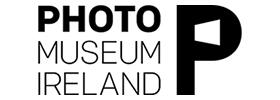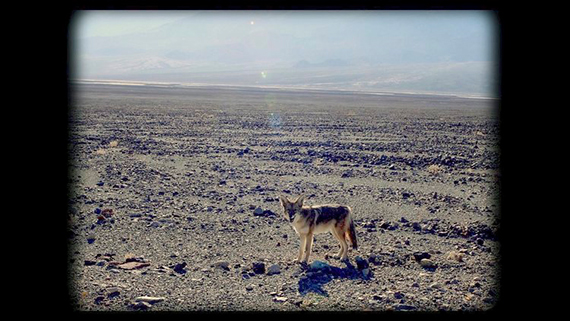
Katherine Waugh & Fergus Daly »
I See a Darkness
Exhibition: 11 Nov – 20 Nov 2022
Thu 10 Nov 18:00

PHOTO MUSEUM IRELAND
Meeting House Square
D02 X406 Dublin
+353 (0)1-6714654
info@photomuseumireland.ie
photomuseumireland.ie
Tue-Sat 11-17

I See a Darkness
is a multi-media exhibition probing the complex historical relationship between photography, cinema and science. Emerging from the trans-disciplinary art practice of Katherine Waugh & Fergus Daly, this new body of work builds on their research-based, philosophically-framed past projects in film, writing and artistic events, drawing on material that is often overlooked or hidden: shadow archives, neglected cultural narratives in film, art and literature, as well as ‘disappeared’ or challenging areas of knowledge.
The artists have created a unique gallery iteration of the film project
I See a Darkness
, framed by photographic prints, videos, archival images and publications. The film and exhibition materials present an artistic exploration of the impact that Irish-born Lucien Bull's chrono-photographic experiments had on the interwoven developments of image-capture aesthetics and science throughout the 20th century. Bull, born in Dublin in 1876, was made director of the prestigious Institut Marey in Paris in 1914 and President of the Institute of Scientific Cinematography in 1948. The exhibition explores how new technologies of vision were from the outset aggressively instrumentalised by the military-industrial complex for its own ends, as the 20th century quest for an aesthetic ‘sublime’ in still and moving images collided with the scientific discovery of an ‘atomic sublime’. The atomic shadow photographs found in Hiroshima and Nagasaki surely testified to, in Akira Lippit’s words,
“a form of total photography that exceeded the economies of representation, testing the very visibility of the visual.”
For Sylvère Lotringer the problem (as posed to Paul Virilio in
Crepuscular Dawn)
becomes: “
[is] the apotheosis of science the apocalypse of science?”
Questions are raised about the streamlining of cinematographic technologies in the 20th century by scientific rationality and the value of looking again at experimental practices and ways of thinking sidelined as a result. Examining the subtle and often hidden intersections between the aspirations of a frequently secretive scientific community and the ostensibly transparent development of artistic and cultural modes of production – ultimately the work reveals a fascinating alternative genealogy of disciplines generally perceived as removed from each other. A mapping of the often contentious fusion of artistic and technological representational models of our world, with their complex political ramifications, emerges, pivoting on three iconic figures whose lives and work intersected in compelling ways: Lucien Bull, Harold E. Edgerton (MIT Professor and engineer), and oceanographer and conservationist Jacques Cousteau.
A new perceptual paradigm related to high-speed photography (Bull), atomic science (Edgerton) and the undersea world (Cousteau), is revealed, using rarely seen photographs and archival footage alongside extensive new film work shot in the Institut de Cinématographie Scientifique and Conservatoire des Techniques Cinématographiques, Paris, the MIT Edgerton Center, MIT photographic archives, the Nevada Nuclear test site, and Death Valley. Contributors include leading cultural thinkers, film archivists, scientists and writers Akira Mizuta Lippit, Jimena Canales, Jonathan Crary, Susan Schuppli, Ben Marcus, Laurent Mannoni, Alexis Martinet and Edgerton Center Director, J. Kim Vandiver.
Katherine Waugh
is a filmmaker, writer and curator whose trans-disciplinary practice includes films such as
The Art of Time
(co-directed with Fergus Daly), a film essay on the complex temporalities in contemporary art, film and architecture which has screened internationally, including at New Horizons in Wroclaw, Poland, M+ Contemporary Art Museum, Hong Kong, Kunsthal Aarhus, ICA London, IMMA Dublin, AV Festival Newcastle and in galleries and festivals in New York and Paris.
She co-curated (with David Morris)
Schizo-Culture: Cracks in the Street
in SPACE gallery London, and was the Irish producer for Sylvère Lotringer’s film
The Man Who Disappeared
, shot in Ireland in 2015, based on Lotringer’s decades of writing on Artaud. Other projects curated with Lotringer include
Artaud on the Beach
, Showroom Gallery London,
The Question Itself
, South London Gallery and
Strange Relations / Relations Étranges
at the Centre Culturel Irlandais, Paris.
Her essays include a commission by Stony Road Press for an essay on Brian O’Doherty’s
Structural Plays
(a limited edition art book exhibited in IMMA Dublin),
Delicate Yet Deadly
for the book Artist-Run Europe (Pallas Projects) and most recently
The Memory of Skin
on artist Mary Ruth Walsh.
She has given talks and curated art symposia and performances in numerous institutions in Ireland and elsewhere including South London Gallery, Whitechapel Gallery, MIMA, Camden Arts Centre, Centre Culturel Irlandais Paris, CAPC Bordeaux and SUNY.
Fergus Daly
is the co-author (with Garin Dowd) of a book on Leos Carax and has contributed essays to the books
Jean-Luc Godard: Documents
,
Movie Mutations
and
One Hundred Years of Soviet Cinema
.
His films include
Abbas Kiarostami: the Art of Living
(co-directed with Pat Collins),
Experimental Conversations
(2006),
The Art of Time
(2009) and
Outliving Dracula: Le Fanu's Carmilla
(2010) (both co-directed with Katherine Waugh),
Armand Gatti: Welcome to our Battle of Images
(2009),
Matter & Memory
(2010),
Immortal Stories
(2014),
Crimson: An Irish Trakl
(2020),
Melmoth the Wanderer 1820-2020
(2020) and
The Mirror of Possible Worlds: Kiarostami on
Aran
(2021). His films have screened worldwide, most recently at MUTA, Lima, the Athens Avant-Garde Film Festival (both 2022) and the Viennale (2021). In 2001 he organised the first International Conference on the work of French filmmaker Philippe Garrel. For EVA 2012 he collaborated with Katherine Waugh on the 6-screen installation
A Laboratory of Perpetual Flux
. He was the Programmer of the
Different Directions Experimental Film Festival
(2008-2010).